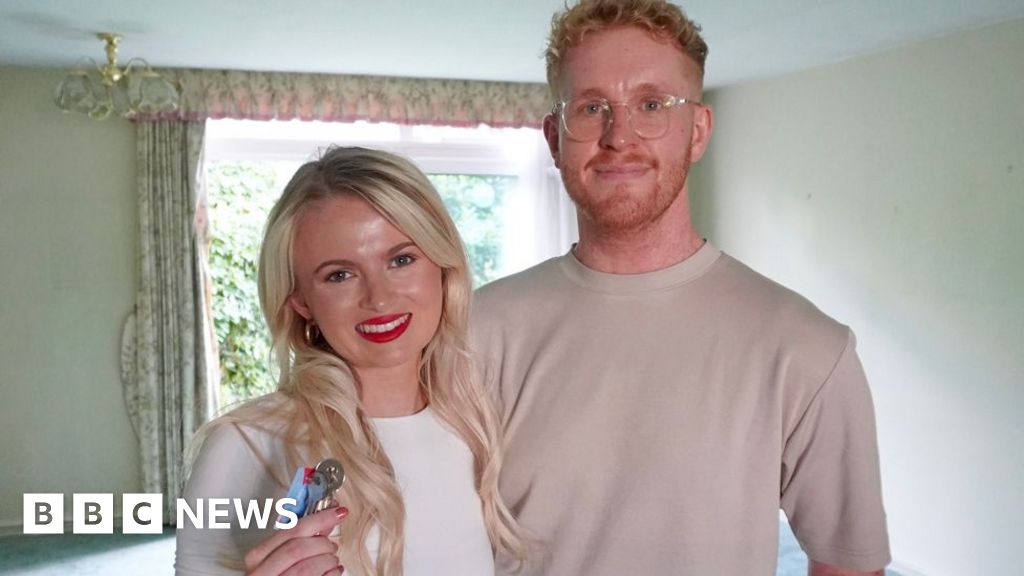ARTICLE AD BOX

 Getty Images
Getty Images
Economic abuse can take many forms (picture posed by a model)
More than a decade after leaving her abusive ex-husband, Lauren is still trapped in their joint mortgage.
Her ex stopped making repayments, blocked attempts to sell or remortgage the property and withheld child maintenance.
Lauren, not her real name, told the BBC she and her children were left penniless.
It comes as a charity warns domestic abusers are using joint mortgages as a weapon. Meanwhile, the banking industry is working to break the cycle of economic abuse.
A survey, published on Wednesday, of 1,000 women who held a joint mortgage in the last two years by charity Surviving Economic Abuse found one in eight experienced joint mortgage abuse.
The majority of those surveyed said the cost of living made their situation worse and the joint mortgage prevented them leaving their unsafe living arrangement.
'Sickening'
Lauren told the BBC: “[The abuse] started with name-calling shortly after we moved in together then, after the birth of my oldest child, things turned physical."
Shortly after giving birth to their child, Lauren's ex-husband tried to rape her and, on another occasion, he broke her wrist.
After he violently assaulted one of her children, Lauren decided to leave.
Throughout their marriage, her ex-husband had also exerted control over their family finances.
Economic abuse, which is recognised in the Domestic Violence Act, is estimated to occur in 95% of domestic abuse.
And for many people like Lauren, it can continue long after a victim escapes their home.
Despite Lauren being awarded the house in the divorce, her abuser remains on their joint mortgage, and she told the BBC her ex had blocked attempts to sell and remortgage the property and racked up huge debts in their name.
It could have been different had Lauren been able to quickly sell the family home.
“It’s sickening. The sale of the house would have given us a secure and fresh start,” she said.

 Getty Images
Getty Images
A survey of 1,000 women who held a joint mortgage in the last two years found one in eight experienced joint mortgage abuse.
Joint mortgages make buying a property easier, allowing people to borrow more money than on their own.
However, a joint mortgage can cause economic devastation if someone refuses to pay their agreed share, agree to new terms, or sell up. An abuser can continue to exert financial control.
A survey, published on Wednesday, of 1,000 women who held a joint mortgage in the last two years by charity Surviving Economic Abuse (SEA) found one in eight experienced joint mortgage abuse.
The majority of those surveyed said the cost of living made their situation worse and the joint mortgage prevented them leaving their unsafe living arrangement.
The charity is calling on ministers to set up an urgent cross-government task force alongside the banking trade body, UK Finance, to better handle cases of mortgage-based abuse.
“Perpetrators can use joint liability to cause a lot of economic harm,” said Deirdre Cartwright, public affairs and policy manager at SEA.


How to protect yourself
Financial analyst Sarah Coles, from Hargreaves Lansdown, says anyone can become a victim. Her advice includes:
- If you are in immediate danger, you should call the police on 999, and call your bank
- Seek advice from specialist domestic violence organisations that can support you. The BBC’s Action Line has links to those who can help
- As long as you are not in immediate danger, make sure you have copies of your financial documents
- Try not to share passwords with partners to access financial information
- Try to educate yourself as much as possible on your mortgage, insurance and all your finances, even if you are in a healthy relationship
- If you can, try saving money of your own
Secret savings
A separate survey by the Building Societies Association (BSA) suggested many secret savers were setting money aside without telling a partner.
Primarily, this was done to maintain a feeling of independence, but the next most popular reason was to use it as an escape fund.
However, there remain millions of people in the UK with little or no savings. The survey suggested women were almost twice as likely as men to have less than £100 put aside.
The financial sector has made progress in recent years to support those experiencing and fleeing from domestic violence.
TSB recently announced an Emergency Flee Fund, offering payments of up to £500. Starling Bank has also made progress in stopping abusers sending messages to their victims through payments.
Many bank branches have safe spaces, where someone can speak privately.
However, joint mortgages, because of the contractual obligation to both parties, can be weaponised long after initial separation. Under current laws, any contractual changes require both parties' consent.
Owning your own home with a partner also affects access to vital resources to help people leave an abuser and severely limits access to legal aid and representation.
In addition to bearing the brunt of joint mortgage payments, some also have to incur expensive legal fees during court proceedings.
"Financial abuse is a horrendous crime," said Fiona Turner, head of vulnerability policy at banking trade body UK Finance.
"We need a quicker route to getting debts and mortgages separated and getting parties delinked."
Whatever the challenges, campaigners and survivors say economic abuse should not stop women leaving dangerous partners when their life and safety is at risk.
"There should be more understanding from lenders on mitigating circumstances,” said Ms Coles.
“Leaving is not easy, but it is worth it.”

 7 months ago
26
7 months ago
26








 English (US) ·
English (US) ·